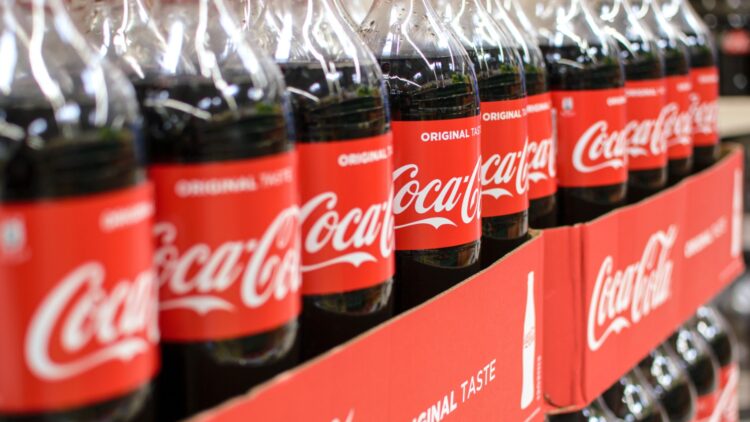The Coca-Cola Company, the largest producer of plastic waste on the planet, has come up with a novel and somewhat peculiar idea: installing Rivers vending machines on university campuses. From now on, those 25-year-old students who have slept barely 20 minutes before their exam will not be able to buy their famous coffee drink and nothing else, but will be able to insert the container and get a refund of £0.20 for each deposit (the equivalent of US$0.27).
Although it has not been installed on all Scottish university campuses, it is available as a pilot program at New College Lanarkshire, specifically in Motherwell, Coatbridge, and Cumbernauld. Although it may seem like just another one of the company’s many eco-friendly tactics, it appears that this is now a test of the effectiveness of the container return model. During the trial period alone, more than 20,000 containers will be collected, representing an increase of more than 80,000% compared to the same period last year.
The thing is, when there’s money involved, people are much more inclined to recycle as an incentive. It doesn’t matter if college students are very hippie: the reality is that they tend to be lazy—like most human beings—and they won’t recycle properly unless they can make a little money from it.
Coca-Cola’s Reverse Vending Machines
These innovative vending machines are just like traditional vending machines… only in reverse. The Reverse Vending Machine (RVM) accepts a product—in this case, an empty container—and dispenses a reward in the form of money or credit. The process is very simple, but no less ingenious for that: the user inserts the empty container, the machine scans it to verify that it is a Coca-Cola bottle, and yes, it contacts it immediately to save space. Finally, it issues a credit worth £0.20.
This return model is widely accepted in Central European countries such as Germany. These types of container return machines are installed in almost all large supermarkets, so Germans have become accustomed to saving all their bottles at home, and the next time they go to the supermarket, they take all their containers with them and receive credit to pay for part of their purchases. No one is going to get rich collecting containers, but the truth is that it’s nice to earn a little extra money.
Best of all, it causes the recycling rate to skyrocket: even the most environmentally indifferent person likes the idea of being able to earn a few extra dollars by bringing in things they weren’t going to use anyway. European countries with this well-established return system—such as Norway and Germany—achieve packaging recycling rates of 90%, which countries that traditionally dispose of packaging in specialized street-level containers cannot even come close to matching.
If this system were to be implemented in a country as large as the United States, Resource Recycling magazine estimates that around 447 billion containers could be collected each year. This would generate $5.5 billion worth of reusable material, reducing millions of tons of greenhouse gas pollution, not to mention saving on waste management costs.
The new Coca-Cola tactic
Coca-Cola hasn’t suddenly become environmentally conscious… they simply knows the market. Carbonated beverage and product companies are feeling increasing regulatory pressure in Europe. The United Kingdom—which includes England, Scotland, and Northern Ireland—plans to implement a nationwide container return system by October 2027. This is why Coca-Cola has launched this campaign: to help young people get used to these types of machines and to introduce, for the first time, the symbolic incentive of £0.20, which is what the government has proposed as a legal deposit. If you live in Scotland, you might want to hold onto that Coca-Cola bottle… at least until you run into a reverse vending machine!

